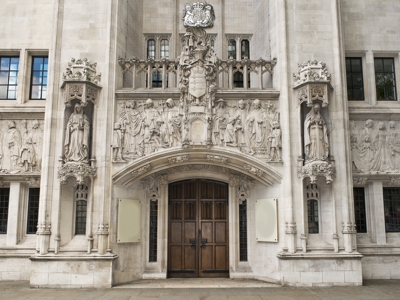
Insuring climate litigation costs
Hollie Brett and Oliver Holland explain why pressure from insurance companies may be the key to encouraging the world’s biggest polluters to clean up their act.
Posted on 17 January 2023
Climate litigation is becoming increasingly common as individuals, communities, and NGOs seek to hold corporations and governments to account for the effects of climate change.
The London School of Economics reported in 2022 that climate change-related cases had more than doubled since 2015. An emerging area of climate litigation concerns disputes between fossil fuel companies and their insurers over payouts for climate-litigation costs.
Wherever there is a risk for a company, insurance products are used as a protective tool. By obtaining insurance, companies can allocate risks to their insurer. Subject to exclusions, general litigation insurance protects companies from the cost of legal fees.
As with any other type of litigation, companies want to be protected against the risk of climate litigation. However, it remains unclear whether companies can recover costs incurred during the course of climate litigation under their standard general litigation policies.
Aloha v NUFIC
A recent complaint filed by Aloha Petroleum Ltd (Aloha) against AIG’s National Union Fire Insurance Co (NUFIC), Aloha Petroleum Ltd v National Union Fire Insurance Co. of Pittsburgh (2022) (Aloha v NUFIC), is set to create a precedent with regards to whether insurance companies will need to cover costs incurred during climate litigation in the United States.
The City of Honolulu and the Honolulu Board of Water Supply (the Honolulu Actions) (filed October 12, 2020 in the Second Circuit Court, State of Hawaii, Civil No. 2CCV-20-0000283), and the County of Maui (the Maui Actions) (filed March 9, 2020 in the First Circuit Court, State of Hawaii, Civil No. 1CCV-20-0000380 (LWC), amended March 22, 2021) are bringing separate, but related, claims against several oil companies, including Aloha. The Plaintiffs allege that the Defendants discredited climate science and downplayed the threat posed by global warming in order to protect their operations. Further, they argue that fossil fuel companies are directly responsible for global warming, as some of the world’s biggest emitters. Aloha claims that it has incurred over $800,000 in defence costs already.
Aloha’s insurer, AIG’s NUFIC, has refused to cover costs incurred in the defence of the Honolulu Actions and the Maui Actions. NUFIC cited that costs for litigation relating to ‘pollution’ were excluded under the general liability policies that Aloha had purchased between 1978 and 1985.
Aloha claims that this refusal to cover their mounting defence costs results in a breach of their contract with NUFIC. The oil company is seeking declaratory relief, per their complaint filed in August 2022.
What would be the implications of insurers refusing to cover fossil fuel companies for climate litigation?
If the court finds that Aloha cannot recover defence costs from NUFIC then this will set a precedent that will have far-reaching implications for companies generally. Fossil fuel companies are likely targets for individuals, communities and NGOs seeking to hold big polluters to account for the effects of climate change.
This means that this industry is particularly likely to face climate litigation with considerable defence costs resulting from it. If fossil fuel companies are not covered for this type of litigation under their general litigation policies, then they could either be forced to proceed uninsured and risk considerable costs or have to pay a premium for insurance that addresses risks associated with climate change.
Alternatively, insurance companies could stipulate that they will only provide insurance to clients with strong ESG principles, as these companies may be less likely to face climate litigation. For example, insurers may require the environmental impact of their client’s operations to be closely monitored and assessed before they agree to provide insurance.
This would be a welcome change as this could lead companies to take steps towards improving their impact on the environment. If fossil fuel companies in particular were forced to put a greater emphasis on Environmental, Social and Governance (ESG) principles, then this could protect vulnerable communities from the most imminent effects of global warming. Insurers therefore have a crucial role to play in the fight against climate change.
Environmental, Social and Governance obligations in the UK
In the UK, there are a limited number of ESG regulations imposed on insurance companies. In addition, these regulations are either restricted in scope or application. By way of example:
- Companies Act 2006: The Companies (Strategic Report) (Climate-related Financial Disclosure) Regulations 2022 inserted section 414CA and 414CB into the Act, requiring companies, including authorised insurance companies and companies carrying out insurance market activity, to report on various sustainability and wider ESG matters. However, the obligations are only imposed if the company has more than 500 employees.
- Modern Slavery Act 2015: Section 54 of the Act requires businesses operating in the UK with an annual turnover of more than £36 million to produce an annual slavery and human trafficking statement.
- Bribery Act 2010: Section 7 of the Act places strict liability on companies to prevent bribery.
As can be seen, whilst there are certain statutes attempting to impose ESG obligations on the insurance sector, they are by no means all encompassing. Instead, legislation is confined to limited situations.
While any judgment that may arise from Aloha v NUFIC would not be binding in the UK, it could nevertheless be persuasive if any similar litigation were to arise in this jurisdiction.
As shown above, insufficient ESG obligations are placed on insurance companies in the UK, despite the potentially crucial role that such companies could play in the mitigation of climate change.
Furthermore, if it is decided in Aloha v NUFIC that insurance companies do have to pay out for costs incurred by their clients in the course of climate litigation, this could put pressure on the insurance industry to force their clients to strengthen their ESG principles prior to insuring them, thus encouraging the biggest polluters to minimise their environmental impact.

Oliver Holland
Oliver is a partner in Leigh Day's international and environment teams. Oliver's practice covers environmental harm, human rights, modern slavery & consumer litigation, including expertise in conflict of law issues & cross-border disputes.

Supreme Court rules that polluted Nigerian communities can sue Royal Dutch Shell in the English courts
The Supreme Court has ruled that two Nigerian communities can bring their legal claims for clean-up and compensation against Royal Dutch Shell Plc and its Nigerian subsidiary in the English courts


